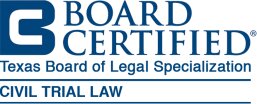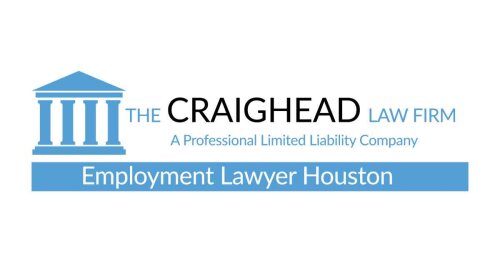Best ADR Mediation & Arbitration Lawyers in Houston
Share your needs with us, get contacted by law firms.
Free. Takes 2 min.
List of the best lawyers in Houston, United States
About ADR Mediation & Arbitration Law in Houston, United States
Alternative Dispute Resolution, commonly known as ADR, includes processes like mediation and arbitration that enable individuals and businesses to resolve disputes outside of traditional court litigation. In Houston, these methods are widely encouraged due to their ability to save time, reduce legal expenses, and often maintain positive relationships between parties. Mediation involves a neutral third party who helps the disputing individuals find a mutually agreeable solution. Arbitration, on the other hand, is more formal and involves a neutral arbitrator who listens to each side and then makes a binding or nonbinding decision. Both are governed by local Texas laws and are frequently used to resolve business, employment, family, consumer, and real estate disputes.
Why You May Need a Lawyer
Many people turn to lawyers specializing in ADR mediation and arbitration for various reasons. Common scenarios include business contract disagreements, employment disputes, consumer conflicts, family law matters, and real estate property issues. Although ADR processes are designed to be more accessible than traditional litigation, they often involve complex legal rules and procedures. A lawyer can help ensure your rights are protected, advise you on the best process for your situation, and represent your interests during negotiations or hearings. Legal advice is especially crucial if the dispute involves high stakes, unique legal questions, or power imbalances between parties.
Local Laws Overview
ADR procedures in Houston follow Texas state laws along with some local Houston guidelines. The Texas Alternative Dispute Resolution Procedures Act largely governs mediation and arbitration, allowing courts to refer disputes to ADR and often making agreements reached in mediation legally enforceable. Arbitration in Texas is regulated under both state and federal statutes, like the Texas Arbitration Act and the Federal Arbitration Act, depending on the nature of the dispute. Many contracts in Houston now include ADR clauses requiring mediation or arbitration before litigation. The Houston Bar Association and other local organizations support and provide guidance for these procedures to make sure rules are followed and ethical standards are maintained.
Frequently Asked Questions
What is the difference between mediation and arbitration?
Mediation is a collaborative process where a neutral third party helps the disputing parties reach an agreement. Arbitration is a process in which a neutral person hears each side's arguments and evidence, then makes a final decision, which can be binding or nonbinding depending on the agreement.
Is ADR mandatory in Houston?
ADR is not always mandatory, but courts in Houston may order parties to attempt mediation before proceeding with litigation. Some contractual agreements also require parties to engage in ADR before filing a lawsuit.
Are arbitration decisions legally binding?
Arbitration decisions can be binding or nonbinding, depending on the terms of the arbitration agreement. Binding arbitration outcomes are enforceable by courts.
How long does ADR typically take in Houston?
ADR processes are usually much faster than courtroom litigation. Many mediations and arbitrations in Houston are resolved within days or weeks, though complex disputes may take longer.
Can I have a lawyer represent me during ADR?
Yes, parties have the right to be represented by a lawyer throughout both mediation and arbitration proceedings in Houston to protect their interests and navigate the legal complexities.
What types of disputes can be resolved through ADR?
ADR is commonly used for employment, business, consumer, family, construction, and real estate disputes, but it can be applied to most civil disagreements.
How much does ADR cost?
Costs vary based on the type of dispute, the professionals involved, and the duration of the process. While ADR usually costs less than litigation, fees can include mediator or arbitrator charges and legal representation costs.
Is the outcome of mediation confidential?
Yes, mediation sessions are confidential in Houston and throughout Texas. Information disclosed during mediation cannot generally be used as evidence in court.
What if a party does not comply with an ADR agreement?
If the outcome is legally binding, courts in Houston can enforce the agreement or arbitration award as a judgment. Noncompliance can result in court actions to compel adherence.
Are there government or community resources to assist with ADR?
Yes, several Houston and Texas organizations provide ADR services and guidance, including the Houston Bar Association, the Texas Young Lawyers Association, and community mediation centers.
Additional Resources
If you need more information or assistance with ADR mediation and arbitration in Houston, consider reaching out to the following organizations and resources:
- Houston Bar Association Dispute Resolution Center
- Texas Young Lawyers Association
- Texas State Office of Court Administration
- Local community mediation centers
- American Arbitration Association regional office
- State Bar of Texas ADR Section
- Harris County Courts - ADR referral programs
Next Steps
If you believe that ADR mediation or arbitration may help resolve your legal issue, consider consulting with a qualified Texas attorney experienced in ADR. Gather all documentation about your case, including contracts, correspondence, and any prior legal filings. Reach out to local mediation centers or the Houston Bar Association for referrals. An initial consultation with an ADR lawyer can help you assess whether mediation or arbitration is right for your situation and guide you through the process. Remember, early legal advice can help you understand your options and improve the chances of a favorable outcome.
Lawzana helps you find the best lawyers and law firms in Houston through a curated and pre-screened list of qualified legal professionals. Our platform offers rankings and detailed profiles of attorneys and law firms, allowing you to compare based on practice areas, including ADR Mediation & Arbitration , experience, and client feedback.
Each profile includes a description of the firm's areas of practice, client reviews, team members and partners, year of establishment, spoken languages, office locations, contact information, social media presence, and any published articles or resources. Most firms on our platform speak English and are experienced in both local and international legal matters.
Get a quote from top-rated law firms in Houston, United States — quickly, securely, and without unnecessary hassle.
Disclaimer:
The information provided on this page is for general informational purposes only and does not constitute legal advice. While we strive to ensure the accuracy and relevance of the content, legal information may change over time, and interpretations of the law can vary. You should always consult with a qualified legal professional for advice specific to your situation.
We disclaim all liability for actions taken or not taken based on the content of this page. If you believe any information is incorrect or outdated, please contact us, and we will review and update it where appropriate.

















